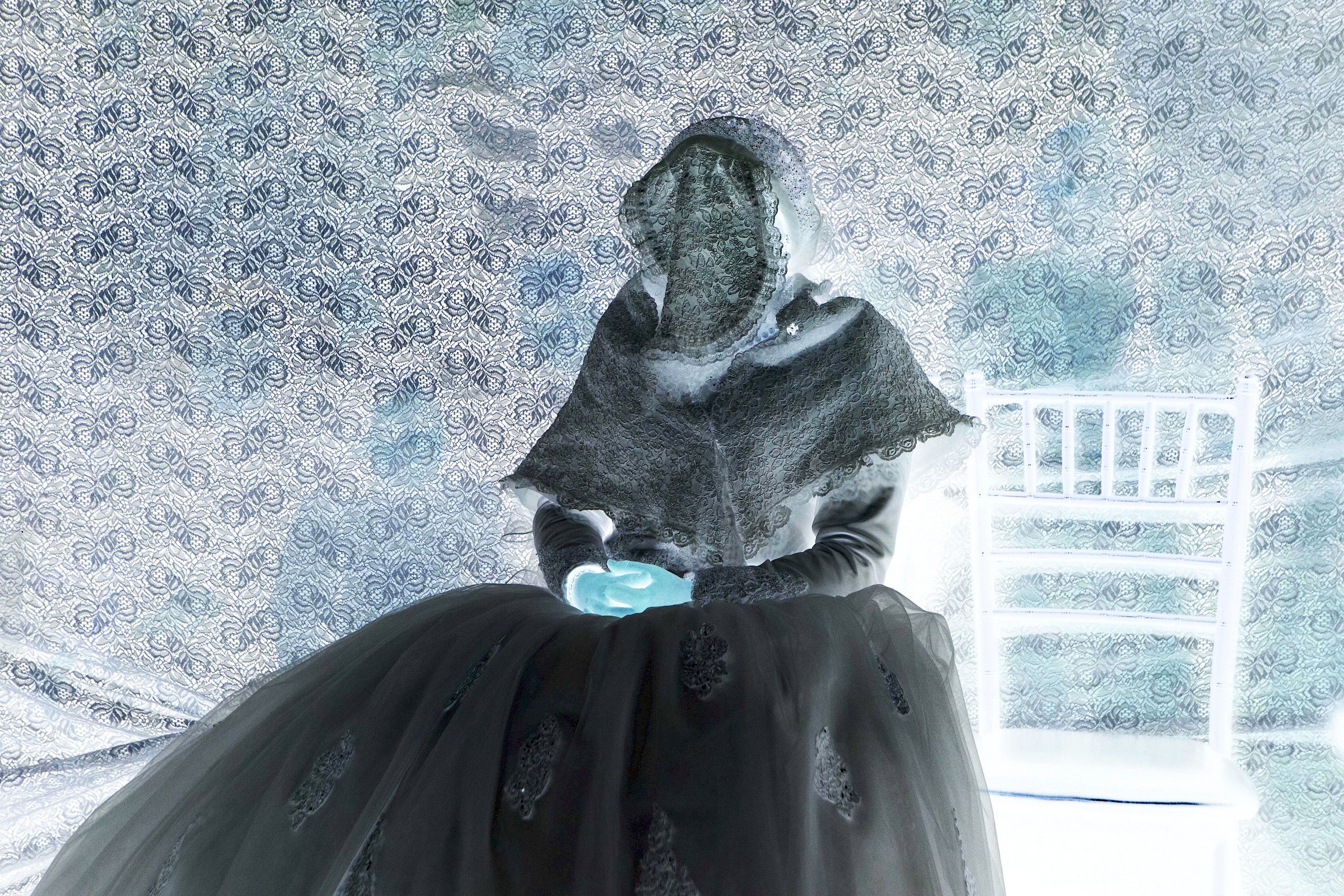What forces of the past take possession of our bodies? How can we give them space and attention without them gaining power over us? How do we deal with our present day demons?
Salomon An-ski's Dibbuk poses questions that the transnational KULA Compagnie, with artists from Germany, France, Italy, Russia, Israel, Iran and Afghanistan, addresses artistically. The play, which was created in what was then Galicia, tells a Hasidic-Jewish love story, initially written in Russian, with Kabbalistic components, which takes up ancient Persian mysticism and makes borders visible and blurres them. The examination of boundaries that attempt to separate people into seemingly insurmountable worlds can be found in many of the KULA Compagnie's works. DIBBUK - between (two) worlds is intended to unfold through two different performances that are performed on the same evening or stand alone. Both parts can also be presented separately in countries where it is not possible for all participants to travel or where their safety is not guaranteed.
An-ski's original is one of the most important works of Yiddish culture. It tells the story of a Jewish bride and groom whose marriage is prevented by the demon of a dead man - the Dibbuk - who enters the bride and takes possession of her. The project by the transnational KULA Compagnie places this narrative in a contemporary, interreligious context. The current escalation of the political conflict in Israel-Palestine represents an immense challenge for the participating artists of the KULA Compagnie and at the same time reinforces the motive to meet in artistic work in order to make a contribution to dialog and understanding in a time of political tension. The KULA Compagnie relies on the transformative power of theater. By transcending seemingly irreconcilable global political conflicts, bridges are built through artistic creation.
Opening night on 17 May 2024 at the Ruhrfestspiele Recklinghausen/ Theater Marl
with further performances
München, Halle Mucca from 16 June 2024,
a co-production of dasvinzenz Theater / Kula Compagnie
| with | Max Bauer (DE) |
| ( Chao Liu (CN) ) | |
| Hadar Dimand (IL) | |
| Sara Khalili (AF) | |
| Slava Kushkov (DE) | |
| Céline Martin-Sisteron (FR) | |
| Tahera Rezaie (AF) | |
| Jonas Schlagowsky (DE) | |
| Peter Schorn (IT) | |
| Romaric Séguin (FR) | |
| Masha Shmoulian (IL) | |
| Zinedinne Smain (DZ) | |
| Robert Spitz (DE, IL) | |
| and participation via video | Fariba Baqeri (AF) |
| Pasquale di Filippo (IT) | |
| Viatcheslav Kushkov (DE) | |
| Azar Mahdavi (AF) | |
| Andrea De Majio (IT) | |
| Soliman Saien (AF) | |
| Alexander Simon (DE) | |
| Homan Wesa (AF) | |
| written based on a template from An-Ski and realized by | Robert Schuster (DE) |
| Stage and costumes | Sascha Gross (DE) |
| Music and sounds | Max Bauer (DE) |
| Light | Michael Bischoff (DE) |
| Ambassadress, Assistent Director, Subtitels, Stage Manager | Khitam Hussein (DE) |
| Assistent Director | Lena Thiele (DE) |
| Video | Simon Vorgrimmler (DE) |
| Three-dimensional animated spaces | Andrew Arnold (DE) |
| Dramaturgy | Yotam Gotal (IL) |
| Dramaturgiacal accompaniment | Zainab Qadiri (AF) |
| Production management | Eric Nikodym (DE) |
| Production management | Mareike Lehne (DE) |
